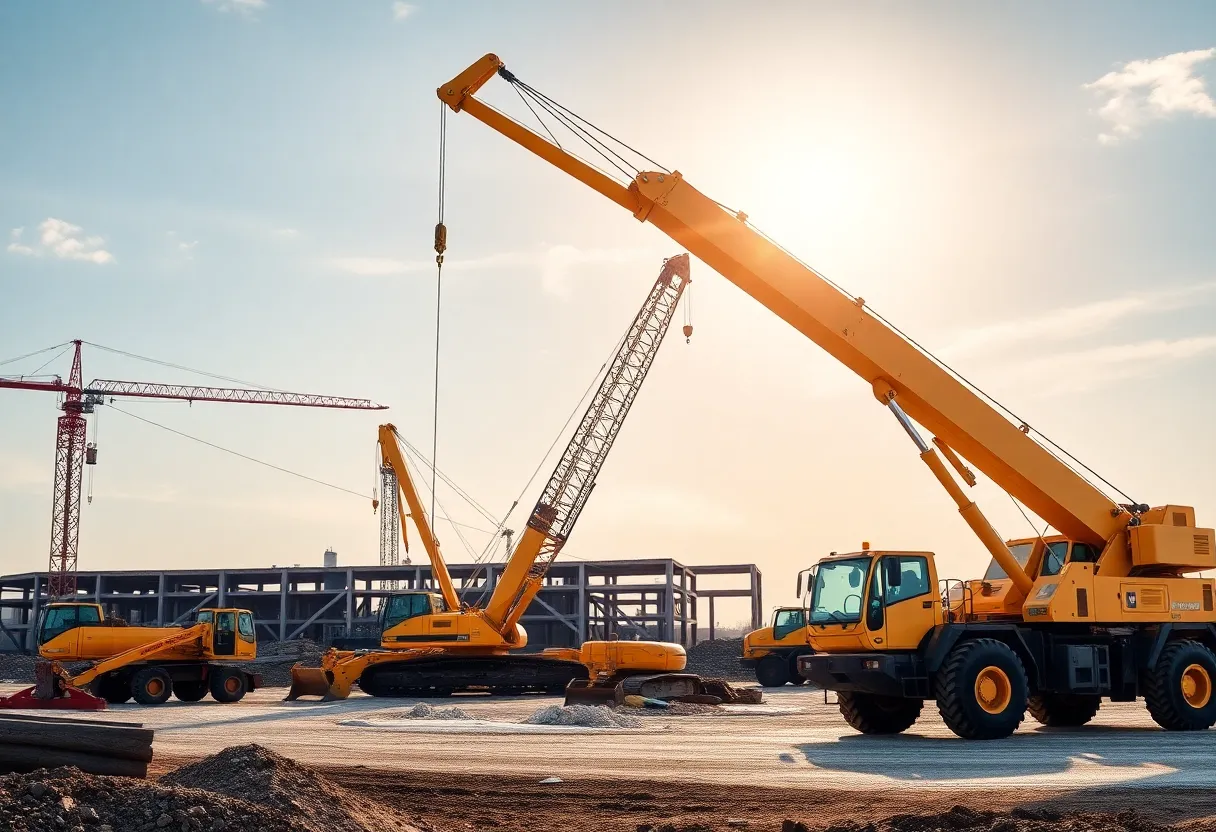Pennsylvania, September 11, 2025
News Summary
House Bill 1319 is making progress in Pennsylvania’s legislature, aimed at extending lien rights to rental equipment companies. This legislation seeks to include rented machinery under the Mechanics’ Lien Law, providing crucial protections for rental suppliers in the construction industry. Such changes are necessary as rental companies face financial risks without these lien rights, ensuring better payment practices and promoting financial stability within the sector.
Lead: Pennsylvania Bill Could Extend Mechanics’ Lien Protections to Equipment Rentals
In Pennsylvania, House Bill 1319 is moving through the state legislature with a plan to extend the Mechanics’ Lien Law of 1963 to cover rented equipment. The bill would treat rented equipment as “materials”, granting rental suppliers the same lien protections as traditional material suppliers. It has passed the House of Representatives and is now before the Senate Judiciary Committee. If enacted, rental providers could pursue liens when equipment rents remain unpaid, even if the equipment is not permanently incorporated into the final structure.
What the bill would do
The proposal seeks to clarify that rented equipment is encompassed by the term “materials” in the Mechanics’ Lien Law, thereby extending lien rights to the equipment rental sector. Practically, this would allow rental suppliers to file liens against a project for unpaid equipment rentals, aligning their protections with those currently enjoyed by labor and material suppliers. The change would apply regardless of whether the equipment remains on site or is removed before project completion.
Why this matters to the industry
Modern construction depends heavily on rented equipment like cranes and other heavy machinery. The proposed shift reflects the reality that such equipment is as vital to a project as traditional building materials. By assigning lien rights to rental companies, the bill aims to reduce the risk of nonpayment and boost cash-flow predictability for equipment suppliers. With the modification, owners and developers would also need to obtain lien waivers from rental firms in addition to contractors and material suppliers to fully clear a project’s title when closing out accounts.
Status and legislative path
The measure has passed the House of Representatives and is currently before the Senate Judiciary Committee. Support in the legislature appears strong, indicating a real chance that the bill could become law if it advances through the committee and the full Senate. Observers note that the legislation aligns with ongoing efforts to modernize lien rights and improve payment practices in Pennsylvania’s construction sector.
Impact on stakeholders
Rental companies could gain stronger leverage in negotiations over payment terms and remedies for unpaid invoices. Owners and developers may need to update contract language to require lien waivers from rental firms, just as they already do with contractors and material suppliers. In turn, this could improve payment reliability and help contractors plan cash flows with greater certainty. The change may also encourage a broader adoption of clear lien waiver practices across all parties involved in a project.
Practical steps for readiness
Industry participants are advised to monitor the bill’s progress and prepare by reviewing procurement contracts with rental providers. Contract terms may need adjustment to reflect new lien realities, and lien waiver procedures should be tightened to ensure consistent, enforceable waivers from rental suppliers. Owners, developers, and general contractors should implement robust payment flow monitoring to mitigate the risk of unpaid equipment rentals.
Potential outcomes
If enacted, the new lien rights could give rental companies improved leverage in resolving unpaid balances and may prompt broader use of liens as a payment discipline mechanism. The change is viewed as a significant development in Pennsylvania’s construction industry, with the potential to reduce the vulnerability of rental firms to nonpayment while supporting smoother project closeouts.
Frequently Asked Questions
What does HB 1319 propose?
The bill seeks to expand the Mechanics’ Lien Law of 1963 to include rented equipment as materials, extending lien rights to equipment rental suppliers.
What is the current status of HB 1319?
The measure has passed the House of Representatives and is currently being reviewed by the Senate Judiciary Committee.
How would the change affect lien rights for rentals?
Rental providers could file liens on a project for unpaid rents, even if the rented equipment is not permanently incorporated into the final structure, aligning rental protections with those of traditional materials.
What should owners and developers do to prepare?
Review and potentially revise contractual terms with rental firms, ensure proper lien waiver practices, and monitor payment flows to reduce risk of unpaid equipment rentals.
What are the expected benefits?
Better protection for rental suppliers, improved cash-flow predictability, and clearer payment discipline across construction projects in Pennsylvania.
Key features chart
Deeper Dive: News & Info About This Topic
Additional Resources
- Pennsylvania Independent: Animal Rights Advocates
- Legal Sports Report: Maryland Online Casino Update
- NH Business Review: Transgender Anti-Discrimination Bill
- IndyStar: Statehouse’s Payday Loans
- Tennessee Conservative News: Criminalization of Parents





